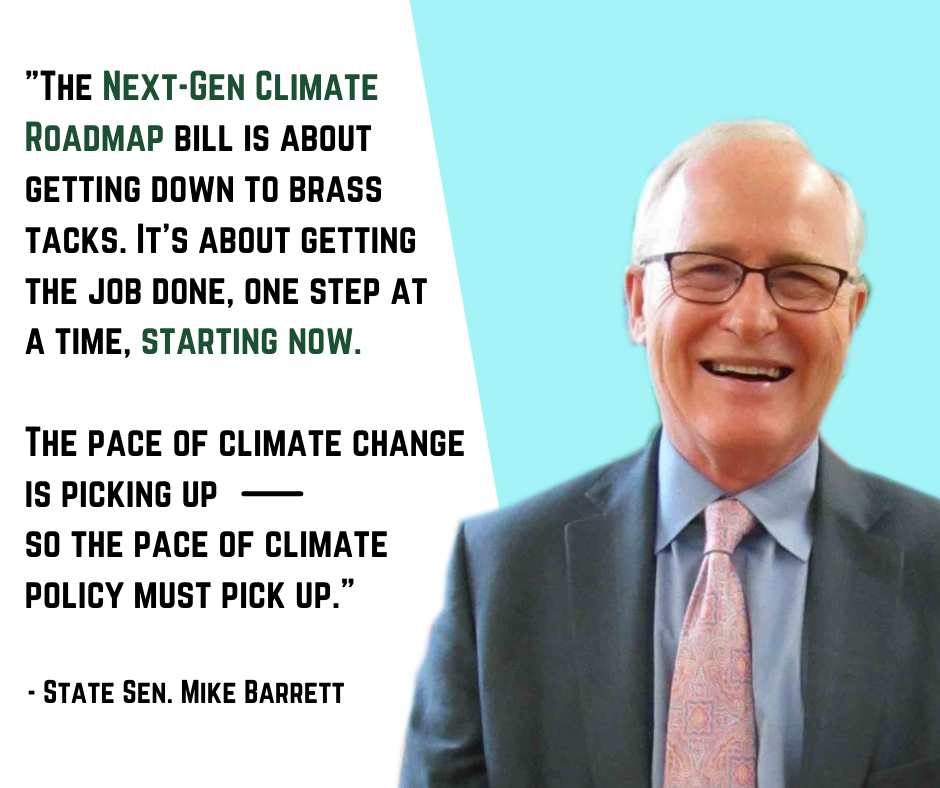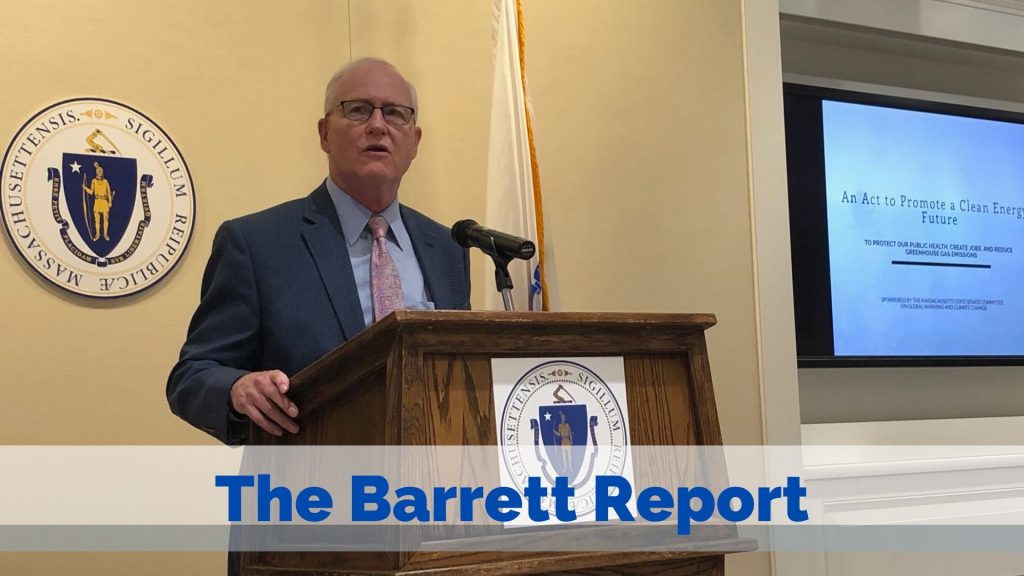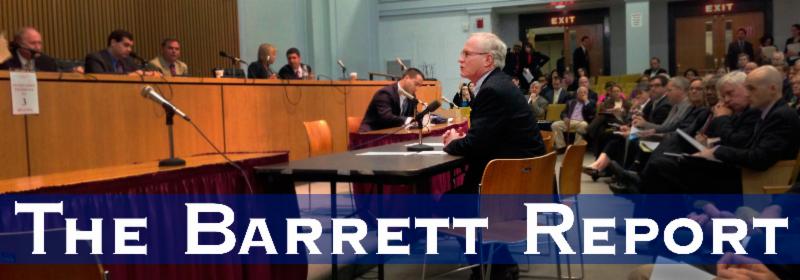For Immediate Release
A landmark climate bill has been signed into law, placing Massachusetts among the world leaders in the fight against global warming. The new law, representing the contributions of many legislators but assembled, edited, and defended principally by local senator Mike Barrett, overhauls the state’s climate statute, advances the clean energy industry, protects low- and middle-income families, and provides tools to get to net-zero emissions by 2050.
“This bill is about getting down to brass tacks. It’s about getting the job done, one step at a time, starting now,” said Barrett, the Senate’s leader on climate and energy. “The pace of climate change is picking up — so the pace of climate policy must pick up. The Next Generation Climate Roadmap law reflects the concerns of people of every age, from every part of the state. The grassroots climate movement of Massachusetts is a force to be reckoned with.”
The bill’s route to ultimate success was not always assured. Despite bi-partisan support in the Senate and House, the bill was vetoed at the end of the last legislative session by Governor Charlie Baker, who cited concerns of special business interests.
In response, Senate President Karen Spilka and House Speaker Ron Mariano moved swiftly to pass the bill again. And when the governor offered an amendment to strip the bill of major provisions, the Legislature stood firm, accepting a number of technical changes but rejecting any effort to slow the rate of climate progress.
The final legislation:
- Sets a statewide net-zero limit on greenhouse gas emissions by 2050, mandates emissions limits every five years, and sets sub-limits for transportation, buildings, and other sectors of the economy. “Tightening the limits and sublimits — keeping the timelines close — is a first-in-the-nation step,” says Barrett.
- Establishes a municipal opt-in specialized stretch energy code which includes a definition of “net-zero building” and net-zero building performance standards.
- Requires an additional 2,400 megawatts of offshore wind, increasing the total authorization to 5,600 megawatts in the Commonwealth.
- Directs the Department of Public Utilities (DPU), the regulator of the state’s electric and natural gas utilities, to balance priorities going forward: system safety, system security, reliability, affordability, equity, and, significantly, reductions in greenhouse gas emissions.
- Codifies environmental justice provisions into Massachusetts law, defining environmental justice populations and providing new tools and protections for affected neighborhoods.
- Sets appliance energy efficiency standards for a variety of common appliances including plumbing, faucets, computers, and commercial appliances.
- Requires utilities to include an explicit value for greenhouse gas reductions when they calculate the cost-effectiveness of an offering of MassSave.
- Increases the Renewable Portfolio Standard (RPS) by 3 per cent each year from 2025–2029, resulting in 40 per cent renewable energy by 2030.
- Factors the “carbon sequestration” capacity of Massachusetts’ natural and working lands directly into our emissions reduction plans.
- Adopts several measures aimed at improving gas pipeline safety, including increased fines for safety violations, provisions related to training and certifying utility contractors, and setting interim targets for companies to reduce leak rates.
- Prioritizes equitable access to the state’s solar programs by low-income communities.
- Sets benchmarks for the adoption of clean energy technologies including electric vehicles, charging stations, solar technology, energy storage, heat pumps and anaerobic digestors.
- Establishes $12 million in annual funding for the Massachusetts Clean Energy Center to create a pathway to the clean energy industry for environmental justice populations, minority-owned and women-owned businesses, and fossil fuel workers.
- Provides solar incentives for businesses by exempting them from the net metering cap to allow them to install solar systems on their premises to help them offset their electricity use and save money.
- Creates a first-time greenhouse gas emissions standard for municipal lighting plants that requires them to purchase 50 percent non-emitting electricity by 2030, 75 percent by 2040 and “net zero” by 2050.
“The new law is a game-changer for Massachusetts that other states are sure to follow,” said Barrett. “It steps up the pace of our collective effort to slow climate change.”
Early deadlines under the new law:
- Beginning around July 1, 2021, the Department of Public Utilities, regulator of natural gas and electric power companies, must give equal weight to emissions reductions alongside the agency’s more traditional emphasis on reliability and prices.
- Also by July 1, Baker will have three new vacancies to fill — green building experts, all — on a reconstituted Board of Building Regulation and Standards, a high-impact-low-profile entity with enormous sway over energy use in new construction.
- By July 15, Energy and Environmental Affairs Secretary Theoharides must set a first-ever greenhouse gas emissions reduction goal for programs sponsored by MassSave, the popular home energy efficiency program.
- By New Year’s Day, 2022, the DPU must have transferred $12 million in new funds to the Massachusetts Clean Energy Center, for a workforce training program focused on clean energy.
- By July 1, 2022, the EEA Secretary must have adopted emissions limits and sub-limits for the fast-approaching year 2025.
- By Christmas, 2022, the Department of Energy Resources must have developed and promulgated a new “specialized stretch energy code” that will be effective for any given town or city only upon adoption by the municipality itself.
###








